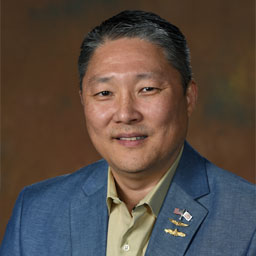Career Management Center at the Jindal School Adapts to Great Resignation
Career Management Center at the Jindal School Adapts to Great Resignation

Although society has begun to open back up, the job market still sees effects from the COVID-19 pandemic. Employers are facing what has come to be known as the Great Resignation — a state in which a flood of employees is still opting for remote work, retiring early or changing careers altogether.
Because of those changes, the demand for college graduates in the workforce is high, said Tom Kim, an assistant dean in the Naveen Jindal School of Management and director of the Career Management Center.
“Companies are reaching out to universities and focusing in on how to bring the young talent into their companies to replenish that workforce that’s missing,” Kim said. “Every day we’re getting employers calling us and asking how they can start to recruit our students.”
Although in-person events are less frequent, Kim said networking is still a key factor to securing a job or internship. For more than two years, the CMC has regularly held virtual meetups and “coffee chats” for students to speak with employers in small groups to address this need.
“Networking is still the best way to get a job, and it’s still the best way for students to achieve their goals at an internship or a full-time position,” Kim said.
Nikita Shetty, a first-year student in the Information Technology and Management master’s program, attended virtual networking sessions during her internship search through Handshake — an online platform that connects students with employers that are hiring. Shetty, who secured an internship with Amazon this summer, said these sessions provided insights about companies’ products and technologies.
“I know of a few cases where my fellow students also got referred (for jobs) after attending a session,” she said.

The CMC also trains students on best practices for networking via LinkedIn. Jamie Son, director of talent acquisition at Lennox, said it is important for graduates about to start the job search to ensure their LinkedIn profiles are up-to-date.
Networking is not the only virtual aspect of most job searches. In a tight candidate market, virtual interviews allow candidates to interview at several companies at once, Son said.
“Ultimately, we want the best candidate experience,” she said. “If we’re able to speed up the interview process without compromising the quality of hire, we will continue to incorporate the virtual interview process.”
To help students prepare for virtual interviews, the CMC uses Quinncia, an artificial intelligence platform, to conduct mock interviews and give students feedback on areas of improvement. Students can also upload their resumes, and set up customized questions based on their information, Kim said.
“Quinncia will give you an analysis of your interview,” Kim said. “It has these pinpoint systems where it’s looking at your face, and your eyes and your mouth. It can detect things such as if I smiled during the interview, or if I just talked like a robot the entire time.”
Shetty said she practiced interviews on Quinncia and received valuable feedback, which she implemented during her internship search.
“I got feedback to speak in a normal-paced tone because I spoke fast in the starting few minutes, and my speed changed later,” Shetty said. “I would not have noticed this while practicing alone. These mock interviews have helped me know how I speak virtually.”
Kim said going forward, the CMC will continue to focus specifically on what the market is looking for and adapt.
“The market is looking for virtual connection with our students, and that’s what we’re focusing on now,” he said. “If the market changes next year, we will change to what the market is looking for. We are teaching our students to be ahead of the game.”